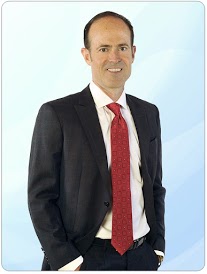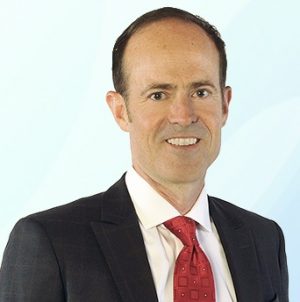| February 2023 | Maximixe your HSA e-Newsletter | Vol. 19, Issue 2 |
Save Money With Medical Tourism!
Healthcare costs are getting crazy. The cost of even basic surgical procedures in the United States has risen out of control. And so have health insurance deductibles!
As of 2020 – the last year for which we have good data available – the average annual deductible nationwide for single, individual coverage was $4,364. Couples and families faced annual deductibles averaging $8,439!
And as of 2023, we’re seeing lots of plans with deductibles as high as $18,200 for married couples and families.
Most people don’t spend that much on healthcare in a year. In effect, these are just catastrophic policies.
Meanwhile, the cost of many common medical procedures abroad is typically 50 to 70 percent less than that they cost here in the United States!
Even if you add in the cost of the round-trip airfare, a hotel, meals, local transportation, and hiring an escort/caretaker while you or your loved one recover from surgery, it’s still far cheaper to get surgery abroad than it is here in the U.S.
And hospitals all over the world are waking up.
Currently, the top healthcare destinations for cost-conscious U.S. patients are Mexico, Costa Rica, Thailand, Singapore, and India.
As always, competition and a free healthcare market in which providers can actively compete for patient’s money, and in which patients control and direct their own healthcare spending, and put their own money on the line works like a charm.
Hospitals and clinics in these established markets that cater to U.S. patients already have stellar reputations, with outstanding, well-run facilities and excellent medical professionals, many of whom are qualified to practice in the U.S.
Other countries are aggressively looking to compete with these established medical tourist destinations for U.S. patients, including Turkey, Korea, Colombia, and Brazil. And there is excellent healthcare to be found in these countries – for a fraction of the cost of getting the procedure in the United States.
Many Americans go overseas, or across the border to Mexico, to access health care they just can’t afford in the U.S. They can’t afford their deductibles, or their existing health insurance just doesn’t cover certain procedures at all.
Examples of common procedures in this category include:
- LASIK
- In vitro fertilization,
- Dental procedures
- Vision
- Cosmetic surgery
- Breast enlargement or reduction
- Weight loss surgery
- Hair transplants
Americans are also turning to foreign providers for more critical and complex procedures, too, including organ transplants they can’t get in the U.S., spinal surgery, and cancer treatment.
Who Should Consider Medical Tourism?
Medical tourism can be a terrific moneysaver if:
- You don’t have a health plan at all, or it’s a very limited one
- You have a very high deductible and you usually don’t spend enough to meet it
- You’re paying cash
- You’re using a health savings account
- You’re using an HRA
- You’re a business owner and you have employees who need an expensive procedure done, and you need to control health care costs.
You have health insurance or a health sharing plan that does not include the procedure. For example, some health sharing plans have a waiting period before they will share for pre-existing conditions. .
How much can you save?
Savings vary widely by country, and by the type of procedure, but it is not uncommon for the cost of major surgery to be less than half or even a third of the cost it would be in the U.S..
Medical Tourism and Healthsharing
Most healthsharing plans will share expenses related to medical care received abroad. In fact, in many cases, they would much rather have the procedure done abroad at a discount than here in the United States.
This may make a lot of sense if you have a very high initial unshareable amount or initial member responsibility.
Most healthsharing organizations have a team of experienced professionals who negotiate discounted prices with providers. It’s a good idea to contact them to see what you can reasonably expect to pay providers in your area for your planned medical procedure, and to confirm that they will pay for services received outside of the country.
What are the risks?
The chief drawback to seeking care abroad is the lack of U.S. regulatory oversight if things go wrong. If there are complications, family members may be thousands of miles away. Patients may be very far from anyone who can act as a patient advocate. However, many medical tourism agencies do provide escort, translation, and advocacy services.
Another thing to consider is that malpractice claims would be extremely difficult to pursue internationally.
Fortunately, medical tourism care providers in these leading destinations have risen to the occasion, and are now providing an excellent standard of care to their foreign tourist patients. Complications and malpractice are very rare.
U.S. insurers are now frequently sending American patients abroad to save money on common procedures. Since they are on the hook for the cost of treating complications, it’s clear that these insurance companies are now confident in the ability of these foreign medical tourism providers to deliver.
Check Accreditation
Before going under the scalpel, make sure your medical tourism provider is accredited with the Joint Commission International, which inspects and vets hospitals and other providers abroad for adherence to quality control and sound medical and sanitary practices.
Score Another Win for Free Markets
The success of the medical tourism industry in recent years is yet another example of the power of free markets and competition. And it’s not just American tourists who benefit: The medical infrastructure funded by foreign travelers will eventually benefit millions of local patients as well. And it’s generating hundreds of thousands of high-paying jobs in areas that desperately need them.
And our own hospitals and doctors are upping their game, too, in order to compete with the keen competition from these lower-cost but high-quality providers.
Where to Learn More
Speak with your primary care physician about scheduling medical procedures outside of the United States. He or she may be able to refer you to some reputable providers. You should also ask about standard recovery protocols and timelines, so you’ll have an idea of how long it will be before you can expect to be able to travel safely post-procedure.
Other possible resources include:
Patients Beyond Borders
The Centers for Disease Control and Prevention
And finally, our own outstanding team of Personal Benefits Managers here at HSA for America. Please don’t hesitate to contact us with any questions you have about paying for healthcare, whether here at home or abroad.
Click here to schedule an appointment, or call 800-913-0172 to get started.
To your health and wealth,

Wiley P. Long, III
President - HSA for America

The HSA for America Maximize Your HSA Newsletter is published monthly and emailed to subscribers at no charge. Subscribe now to stay on top of the critical information you need to know about health insurance, healthshare plans and managing your finances to achieve financial security.


Available Plans | HSA Info | Healthshare Info | FAQS | Blog | About Us | Contact Us | Agents Needed
1001-A E. Harmony Rd #519 Fort Collins, CO 80525
Telephone: 800-913-0172
[email protected] | © 2024 – All Rights Reserved
Disclaimer: All information on this website is relayed to the best of the Company’s ability, but does not guarantee accuracy. Information may be out of date. The content provided on this site is intended for informational purposes only and does not guarantee price or coverage. This site is not intended as, and does not constitute, accounting, legal, tax, and/or other professional advice. Determination of actual price is subject to Carriers.


